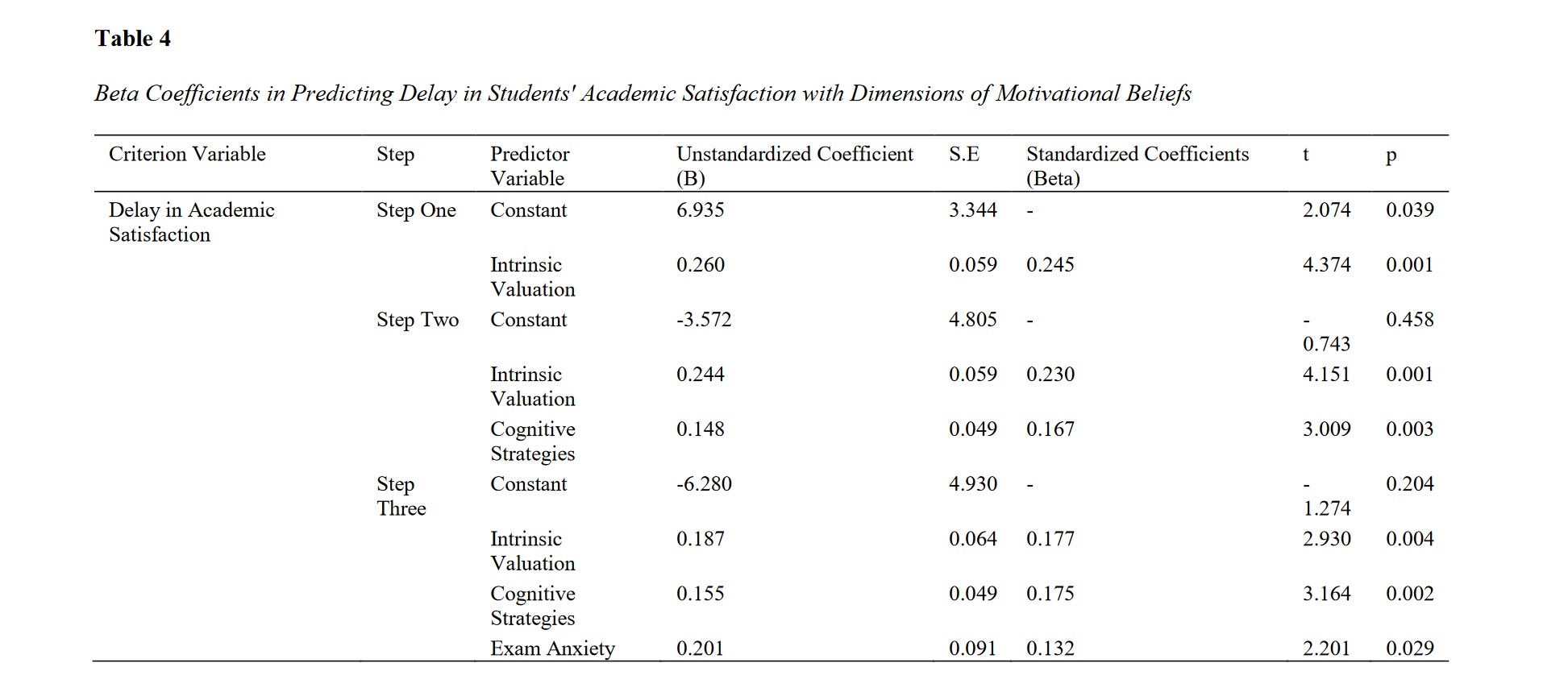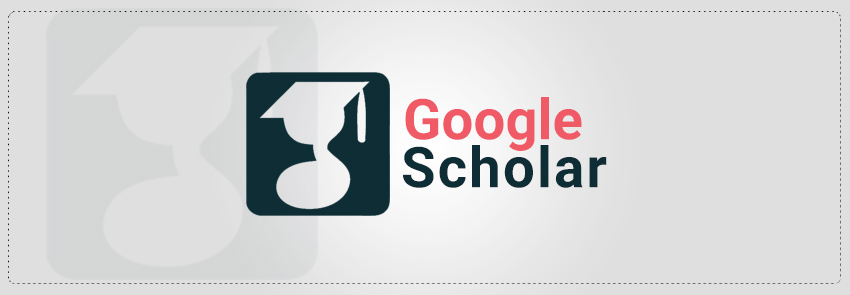Predicting Delay in Academic Satisfaction Among Students Based on Implicit Intelligence Beliefs and Motivational Beliefs
Abstract
The purpose of the present study was to predict the delay in academic satisfaction among students based on implicit intelligence beliefs and motivational beliefs. The research method was descriptive-correlational. The population of this study included all male middle school students in Khomeini Shahr, Esfahan, who were enrolled in the 2021-2022 academic year. Using a multi-stage cluster sampling method, 302 students were selected as the research sample. The research instruments included the Babaei Implicit Intelligence Beliefs Questionnaire (1998), the Pintrich et al. Motivational Strategies Questionnaire (1991), and the Academic Satisfaction Delay Questionnaire. Pearson correlation and stepwise multiple regression analysis were used for data analysis. The results indicated that regarding motivational beliefs, the best predictors of delay in academic satisfaction among students were, in order, intrinsic valuation, cognitive strategies, and exam anxiety; and regarding implicit intelligence beliefs, the best predictor was the incremental view of intelligence. Based on the findings, it can be said that students' implicit intelligence beliefs and motivational beliefs can predict their tendency towards delay in academic satisfaction.
Downloads

Downloads
Additional Files
Published
Issue
Section
Categories
License
Copyright (c) 2024 Seyed Amir Hosein Mousavi (Corresponding Author); Mehdi Arab Zadeh, Hadi Keramati (Author)

This work is licensed under a Creative Commons Attribution-NonCommercial 4.0 International License.







